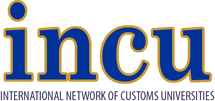INCU Advisory Board Member, Mr Lars Karlsson and Head of INCU Secretariat, Dr Mikhail Kashubsky, participated in the Global Trade Development Week 2017 “Navigating Global Trade & Reviving Global Growth”, which was held from 30 October to 1 November 2017 in Dubai, UAE.
 The conference was attended by more than 200 delegates from around the world including representatives of the private sector, government agencies, academia and international organisations. Keynote addresses on day 1 of the conferences were delivered by the UAE Minister of Economy, H.E. Eng Sultan bin Saeed Al Mansoori, the Commissioner of the UAE Federal Customs Authority, H.E. Ali Bin Soubih AlKaabi, Secretary-General of the United Nations Conference on Trade and Development (UNCTAD), Dr Mukhisa Kituyi, and a video address was delivered by José Angel Gurría, Secretary-General of the Organisation for Economic Co-operation and Development (OECD).
The conference was attended by more than 200 delegates from around the world including representatives of the private sector, government agencies, academia and international organisations. Keynote addresses on day 1 of the conferences were delivered by the UAE Minister of Economy, H.E. Eng Sultan bin Saeed Al Mansoori, the Commissioner of the UAE Federal Customs Authority, H.E. Ali Bin Soubih AlKaabi, Secretary-General of the United Nations Conference on Trade and Development (UNCTAD), Dr Mukhisa Kituyi, and a video address was delivered by José Angel Gurría, Secretary-General of the Organisation for Economic Co-operation and Development (OECD).
Lars Karlsson moderated a Panel Discussion on day 3 “Trade Facilitation and the Single Window Implementation” that discussed a variety of issues including key considerations such as IT infrastructure, capacity building, leadership, legal matters, challenges in conversion and change management activities, links to operational processes, costs involved in Single Window implementation and establishing public-private partnerships (PPPs) to mitigate risk and ensure success. He also delivered a trade capacity building workshop on Trade Facilitation Agreement and other trade facilitation and security initiatives such as AEO.
Mikhail Kashubsky chaired day 3 of the conference and moderated a Panel Discussion on “Developing strategic public – private partnerships between customs agencies, the logistics industry and corporate organisations to allow greater trade facilitation, improve controls, enhance security, simplify procedures and lower costs” which discussed topics such as “promoting joint identification of trade facilitation and compliance issues and development of policy proposals, leveraging on strategic partnership for trade intelligence and risk mitigation, developing and coordinating the National Trade Facilitation Committees and agendas; and how can public-private partnerships be further improved”.

In moderating the panel discussion Dr Kashubsky also emphasised the important contribution that academia can make to international trade facilitation through academic empirical research and education.
